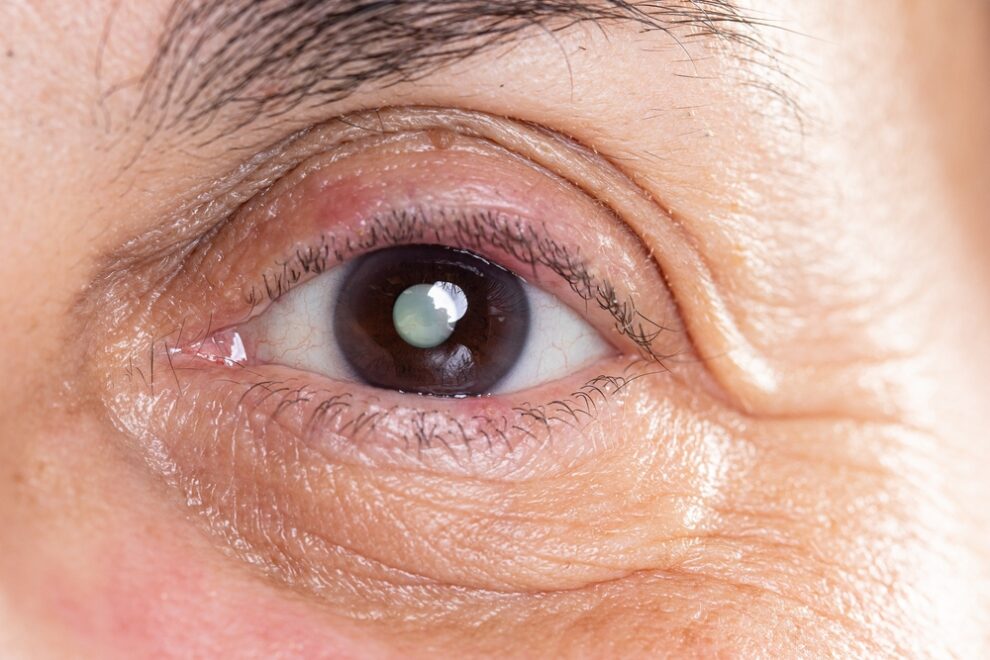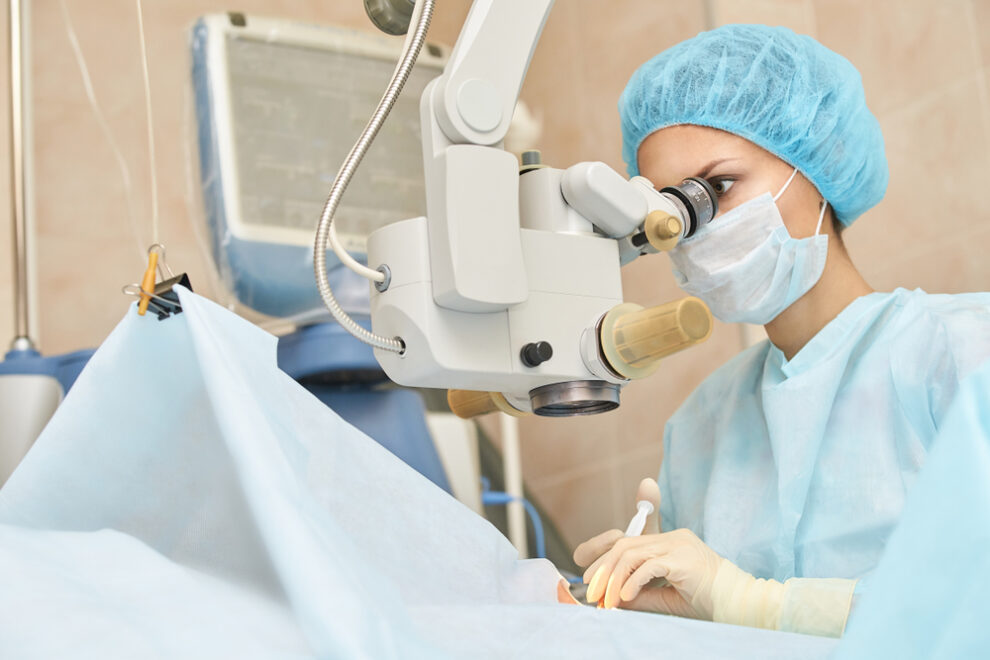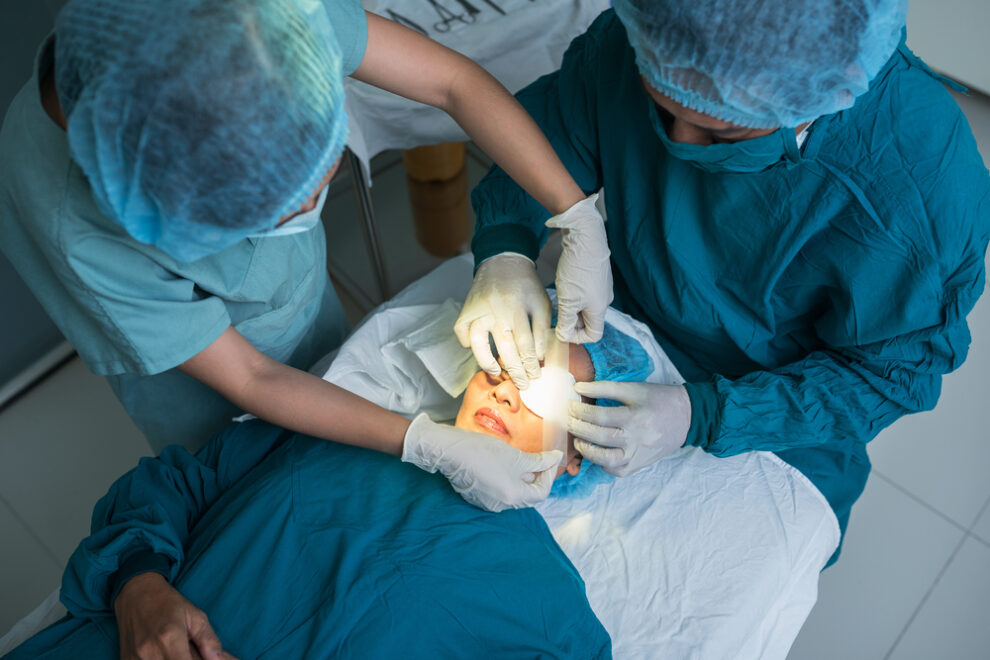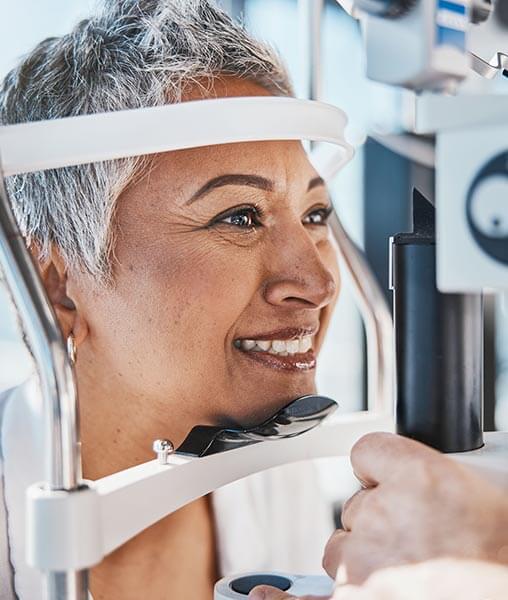Posted by: Albany Cornea | Center For Eye Care Excellence in Cataract Surgery

Cataracts clouding your vision? Do you have cataract surgery scheduled soon? One of the most common concerns patients have leading up to cataract surgery is how long they’ll need to press pause on their fitness routine.
Understanding the right approach to physical activity after cataract surgery isn’t just about convenience, it’s essential for proper healing and optimal results. Keep reading to discover exactly when you can safely resume your favorite activities while ensuring proper healing after cataract surgery!
What is a Cataract?

A cataract is the clouding of your natural lens. The lens, which is usually clear, refracts incoming light, allowing you to see.
However, due to factors such as aging, proteins inside your lens can start to break down and build up, forming a cloudy area in your lens. Many people describe having cataracts as looking through a constantly foggy window.
At first, cataracts often don’t cause noticeable vision changes. However, as cataracts become bigger and cover more of your lens, you may experience symptoms such as:
- Cloudy or blurred vision
- Halos around lights
- Double vision in one eye
- Yellowing or fading of colors
- Difficulty seeing at night
- Requiring brighter lights for up-close activities
What is Cataract Surgery?

Cataracts often develop slowly. Over time, the symptoms of cataracts can make it challenging to see and complete everyday activities like reading, cooking, using your computer, and driving.
When that happens, your ophthalmologist may recommend cataract surgery. Cataract surgery is the only effective treatment for cataracts.
It’s a procedure that removes your cataracts and restores clear vision. First, your cataract surgeon will create an incision in the front surface of your cornea.
Through that opening, they’ll remove the cloudy natural lens and replace it with an intraocular lens or IOL. The new IOL will allow you to see clearly again.
Once the IOL is in place, the incision made heals on its own and doesn’t require stitches. Finally, your cataract surgeon will place a shield over the operated eye to protect it as it heals.
It only takes 10 to 15 minutes to complete the procedure.
What is Recovery Like After Cataract Surgery?
After your cataract procedure, you’ll be moved to the recovery area for around 15 to 30 minutes, and then you can be discharged. Before leaving, your cataract surgeon will provide post-operative care instructions.
They’ll also prescribe eye drops to prevent infection and minimize swelling. Ensure you adhere to all the instructions given, including applying eye drops as prescribed.
In addition, you’ll be scheduled for follow-up appointments. Attend all your scheduled visits to enable your ophthalmologist to monitor your progress and ensure your eye is healing as it should.
You won’t be able to drive after your cataract procedure, so it’s important to make prior arrangements for someone close to you to drive you home.
Initially, your vision might be blurred as your eye heals and adjusts to the new IOL. Most patients notice improved vision within 24 to 48 hours following their procedure. Full recovery may take approximately 4 to 6 weeks.
Can You Exercise After Cataract Surgery?
Cataract surgery is effective and safe, with high success rates. As with any surgical procedure, you’ll need to take time off from some of your regular activities to allow your eyes to fully heal. This will decrease the risk of possible complications, promote a smoother recovery, and ensure optimal results.
While the actual timeframe for safely resuming exercise again will vary from patient to patient, here are general guidelines:

Week 1
A week after your cataract procedure, you can engage in low-impact exercises like short walks, light stretching, and gentle seated exercises with the permission of your eye doctor.
Don’t lift anything above 10 to 15 pounds or bend at the waist to prevent high eye pressure. Also, stop exercising if you experience any vision changes or discomfort.
Week 2
At weeks 2 to 4, you’ll still need to take it easy. Your ophthalmologist might clear you for moderate-intensity activities such as brisk walking, slow dancing, jogging, stationary cycling, and light aerobics or yoga while still avoiding inverted positions.
Weeks 4 to 6
By this time, you should be fully healed and able to resume most physical activities, including running, weight lifting, intense cycling, swimming, tennis, golf, and other sports. Still, it’s best to get approval from your ophthalmologist before resuming more intense exercises.
Why Do You Have to Wait to Exercise Following Cataract Surgery?
There are several reasons why it’s crucial to hold off working out for some time, including:
High Eye Pressure
Elevated eye pressure due to heavy lifting and bending over may cause the incision created in your eye during cataract surgery to open. High eye pressure can also heighten your risk for glaucoma, a progressive eye condition that can cause permanent vision loss.
Blurred Vision
Your vision might be blurry for the first few days, making you more likely to injure yourself.
Eye Irritation and Infection
Exercise can stir up dust, dirt, and other particles, which can easily enter your eye. This can cause eye irritation and increase the risk of infection before your incision fully heals.
Exposure to water can also put your eye at risk of infection. That’s why you should avoid swimming for the first four weeks after your cataract procedure.
Eye infections during recovery can be serious and may cause vision loss. Giving your eye enough time to heal before exercising and performing other activities can considerably lower the risk of complications.
What Other Restrictions Should I Follow After Cataract Surgery?

You should also avoid the following to minimize your risk of developing complications and speed up your recovery. Avoid getting soap, water, or shampoo in your eyes when showering.
Additionally, don’t swim, use a steam room or hot tub, or go to a sauna. Do not sleep or nap without your eye shield. Wear it for as long as your cataract surgeon recommends.
Don’t go outside without wraparound sunglasses. These sunglasses will help with light sensitivity and protect your eyes from dirt, dust, debris, and pollen.
Refrain from driving until your ophthalmologist gives you the go-ahead during your follow-up appointment. It’s also important that you don’t touch or rub your eye to prevent eye infection.
You Deserve Clear, Sharp Vision
At the Center for Eye Care Excellence, we offer advanced cataract surgery and personalized post-op care plans, including when to return to exercise to ensure a smoother recovery and the best possible outcome.
Do you need cataract surgery, or are cataracts interfering with your daily life? Schedule your appointment at Center for Eye Care Excellence in Albany, NY, today, to get on the path to a clear, vibrant vision and an active lifestyle.

